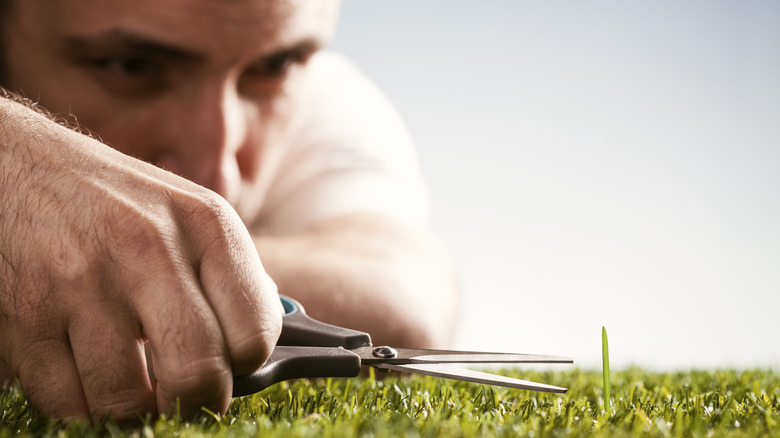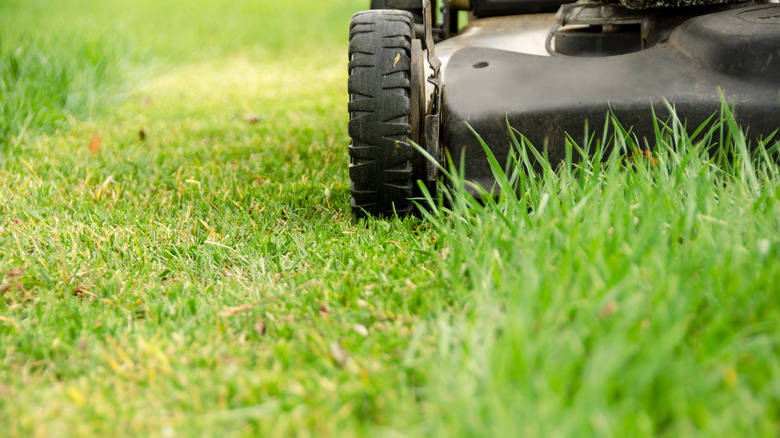What Does It Mean To 'Scalp Your Lawn' And Why Is It Bad?
We all love a nice, green, healthy-looking lawn. But sometimes, we lack the knowledge to care for our lawn correctly to make it flourish, and we damage it by scalping it. As gardening lovers call it, "scalping your lawn" is when you cut your turf extremely short to allow the grass' stems and soil to get some sunlight. By doing it, the grass can renew after the winter and come back stronger and denser during spring and summer.
However, this practice must be performed at the right time, or it can end in a sad-looking, weedy, brown, patchy lawn. If you are one of those who cut their lawn too short to have more extended periods between mowing sessions, this is your sign to stop doing it. We'll show you why doing it is a bad idea and how to cut your lawn the right way to have a nicer, lusher lawn.
Why is it bad to scalp your lawn?
There are several reasons why scalping your lawn is more detrimental than beneficial. For example, scalping your lawn is only advisable for some types of grass like Zoysia and Bermuda. If you have a different type, skip the scalping and stick to mowing your grass a bit on the tall side.
Also, cutting the grass too short will stress it out and make the plant focus on growing its cut blades instead of establishing deeper, stronger roots. Scalping your lawn frequently will make it grow slower and weaker; it also promotes weed growth and damages the exposed soil due to excessive sunlight.
Additionally, cutting your grass too short at the wrong time will ruin it. Doing it in early spring exposes the grass' stems to frosts that can kill the plant, while doing it too late in the summer can wither the plant blades due to scorching temperatures.
How to maintain your lawn
Now that scalping your lawn is out of the picture, you must follow some recommendations to take care of your turf correctly to ensure proper, healthy growth all year. First, remove all weeds, moss, and thatch growing in your lawn regardless of your lawn type; use special weedkillers or remove them by hand to get rid of them all, and use a rake to remove thatch and moss. Second, take a garden fork and poke some holes in your lawn. This will let air, water, and nutrients penetrate your soil and enrich your grassroots.
After that, mow and edge your lawn using sharp blades and set your mower to the highest setting; remove all clippings and debris after mowing to let the freshly cut grass breathe without mulching. Now, overseed any patchy area that needs a boost, and add water and fertilizer over your lawn to keep it fed and hydrated all year.
If you love gardening and want a dreamy-looking lawn, skip scalping it and follow these beginner-friendly tips; your lawn will look pleasing and healthy all year.


